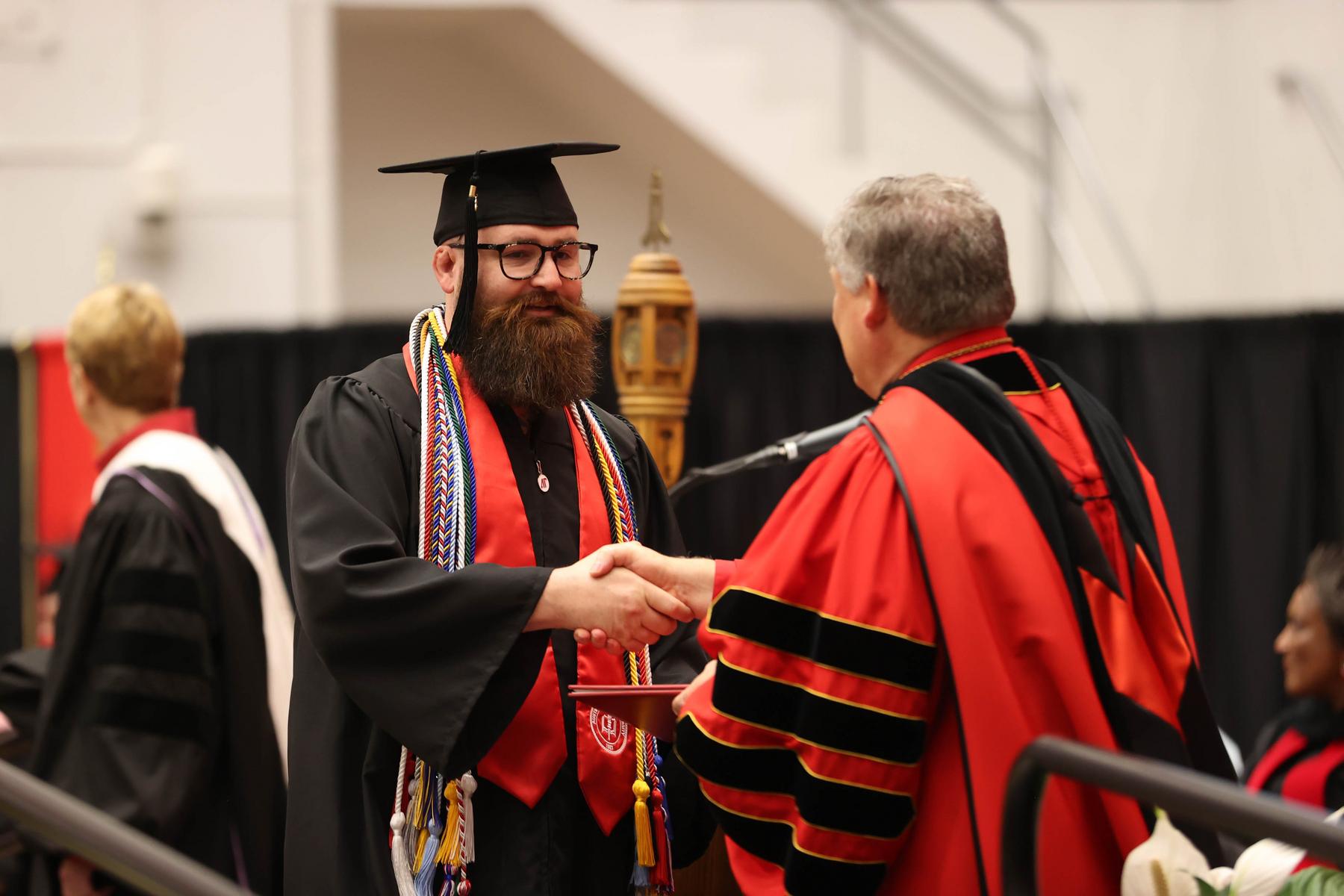APSU graduate student receives new Vet Center Scholarship to support veterans’ mental health
(Posted on Tuesday, June 20, 2023)
CLARKSVILLE, Tenn. - Retired Army CW4 Brandon Morris, a first-year clinical mental health counseling master’s candidate at Austin Peay State University (APSU), learned a lot during his 20 years of service – but his biggest takeaway was a desire to give back to veterans.
Now he’s taking that opportunity as one of the inaugural Vet Center Scholarship recipients, earning a full ride to complete his master’s degree at APSU starting in July. After his graduation in December 2025, Morris will have a guaranteed six-year job placement providing counseling services through the U.S. Department of Veterans Affairs (VA).
“I’m really interested in emotional intelligence, and I think that’s historically something we haven’t done a good job of in the military,” said Morris, who recently earned a bachelor’s degree in leadership science from APSU. “I think that needs to change because it’s very impactful on the other side of service once you retire … I want to help people find the words for their feelings because being able to explain how I was feeling was truly the most impactful thing for me as a veteran.”
The Vet Center Scholarship Program provides aspiring mental health professionals like Morris with funding for up to two years of graduate studies in a related field. From there, recipients will receive a full-time job at one of the VA’s 300 Vet Centers, which provide social and psychological services to the military community.
“I think any time the VA is offering a very specific track it’s a call for help, so I took [this scholarship] as a sign that veterans like myself need more people to talk to,” Morris said. “Once you finish the graduation requirements, you work with the VA team to figure out an underserved community that you’re willing to move to.”
Wherever Morris’s career leads, Dr. Kimberly Coggins, the coordinator of Austin Peay’s Master of Science in Counseling program, said his dedication will enrich the University community.
“I’m excited for our students to have this additional scholarship opportunity, and it’s great to have someone so qualified coming in,” said Dr. Kimberly Coggins, the coordinator of Austin Peay’s Master of Science in Counseling program. “Brandon will be getting trained to work with the population he’s most excited about, and that translates to quality mental health care.”
Coggins said the program helps students gain a strong understanding of counseling theory’s foundations, allowing them to develop their core counseling skills before graduation.
“Our students end up working in a lot of places, from schools to jails to hospitals,” she said. “For Brandon especially, these skills will translate very well to working with veterans. APSU has really made an effort to be welcoming and open to veterans … I think that we’re well-positioned to help students who are interested in working with veteran populations, and this scholarship affirms we’re a great school for training people to work with the military community.”
Morris’s Army career began in 2000 and helped prepare him for professional success. He retired in 2021 as a Chief Warrant Officer 4 from the 160th Special Operations Aviation Regiment (Airborne) at Fort Campbell, where he served as a logistics specialist.
“I’ve been a professional student for the last 20 years, and I graduated in May because I finally figured out what I wanted to be when I grew up,” he said. “I have over 250 credit hours of undergraduate work from multiple institutions, but the most impactful thing I learned was after I retired. We may retire, but we don’t ever hang up being compassionate leaders and there are so many different avenues to help people.”
As a master’s candidate and future counselor, Morris is most interested in veterans’ emotional development and intelligence. He also wants to explore how those concepts can be integrated into veterans treatment court programs, which help veterans involved in the criminal justice system.
“When you leave for the Army at 18-19 years old and you become a part of the big organism that is the military, your emotional growth is stunted,” he said. “You serve for however long, and then you’re back to whatever age of emotional intelligence you were when you joined. We see that manifest in retirement with veteran treatment courts being overwhelmed and veterans having trouble assimilating back into the civilian population.”
Morris is currently assisting Dr. Emily Pica, an associate professor in the Department of Psychological Science and Counseling, with a study on the Montgomery County Veterans Treatment Court that inspired his upcoming master’s thesis.
“I want to expand her study to measure the emotional intelligence of veterans before and after the veterans treatment court,” he said. “That could help see if we can interject some of that into the treatment process, so we don’t see as high of recidivism rates.”
Morris said Austin Peay’s support for the military community made it a perfect place for him to continue his education, and he hopes to leave a lasting impact on veterans through the skills he learns in its counseling program.
“It would mean a lot to me to become a therapist for veterans,” he said. “I think veterans as a community are often misunderstood, and I’m absolutely thrilled to be in a position where I can help them one day.”
